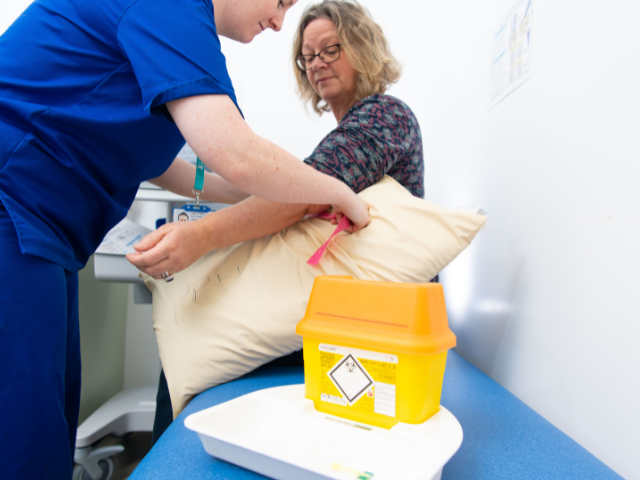
New clinical trial aims to improve long term immune response to Flu vaccine
12 September
Older people across Wales are being asked to join a clinical trial to determine whether taking a simple wheatgerm food supplement can improve the long term immune response to the flu vaccine.
The IRFLUVA study, sponsored by Cardiff University, is open to people aged over 65 who are eligible for a normal flu vaccine, and who are able to visit the University Hospital of Wales in Cardiff where the trial will take place. A full list of exclusion criteria and other patient information can be found here.
The study lasts for 37 weeks and involves four clinic visits. Participants will receive a normal seasonal flu vaccine and will be asked to take either a dietary supplement or placebo every day at home, with follow-up blood tests to check their general health and immunity to flu.
Dr Lucy Jones, Principal Investigator (PI) on the IRFLUVA study, said that new evidence suggested foods containing substances called polyamines may be important for the immune response, particularly in older people.
She added: “We would like to find out more about how older people find taking this supplement and explore if it can improve the immune response to the flu vaccine. It is not a medication, and its safety has been studied carefully. This research trial will look at if it is simple to take the supplement daily and whether older people find it acceptable.
“Seasonal flu may be one of the more common respiratory illnesses in circulation during the colder months, but it can still be serious among the elderly and vulnerable population and is associated with many excess deaths each year.
“We hope this trial will give us more information about whether the food supplement can be used in a larger trial in the future, and to see if it can improve the immune response to the flu vaccine in older people, making it stronger for longer and protecting them during the flu season.”
Dr Nicola Williams, Director of Support and Delivery at Health and Care Research Wales, added: “Flu vaccines are an important intervention in helping to limit the worst effects of the virus, and clinical trials such as IRFLUVA are key in helping us to understand how we can optimise the medicines we already have so that they are as effective as possible. We look forward to seeing the outcome of this trial and I would encourage as many eligible people as possible to get involved.”
For more information about the study or to take part, contact the study team on 02921 848251 or 0748 0926235, or click here